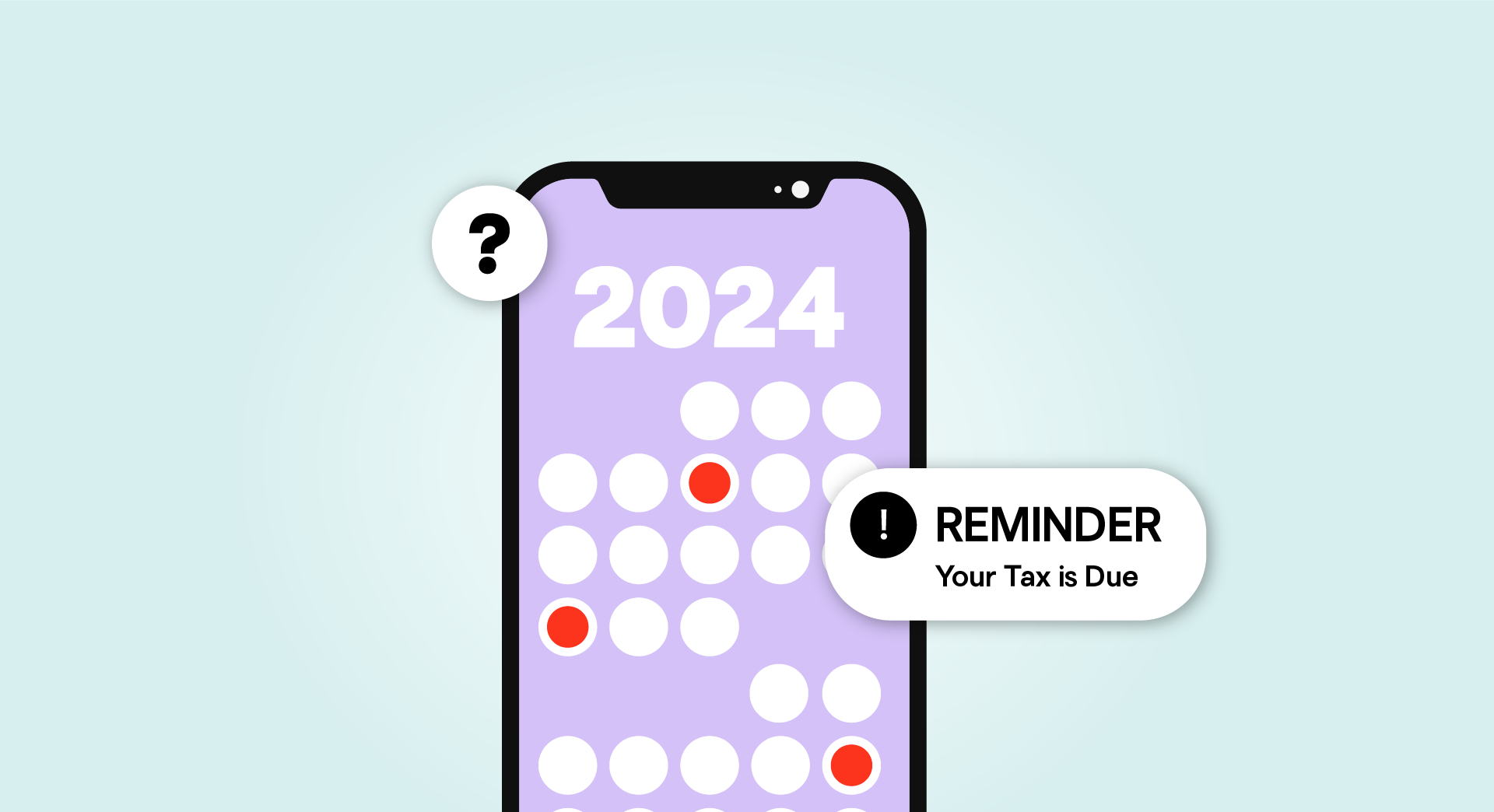This tax return deadlines article is for educational purposes and should not be construed as legal or tax advice. Always consult an attorney or tax professional regarding your specific legal or tax situation.
As tax time rolls around, many small business owners begin to wonder about tax return deadlines — and there are a few!
Small business owners have between 1 July and 31 October 2025 to lodge their business tax returns.
The deadline for lodging your tax return may be extended to the 15 May next year, but only if you use a tax agent to help you lodge your return and you book them in before 31 October of this year.
As well as lodging your tax return for your business, there are also due dates for:
- The Goods and Services Tax (GST)
- Business Activity Statements (BAS)
- Fringe Benefits Tax (FBT)
- Pay-As-You-Go (PAYG) if you employ staff
That’s a lot to remember, so here are the key dates. Keep them handy so come tax time, you’re ready.
Do better business with Xero - FREE for six months. Xero accounting makes it quicker and easier for small businesses to send invoices, reconcile payments and manage finances. Claim offer.
Important 2024/2025 Financial Year tax dates
No one wants to miss an important tax return deadline and find themselves facing a penalty from ATO. Use this list to stay on track.
15 May 2026
This is the tax return deadline for individuals and partnerships who lodge their returns with a tax agent for the 2024/2025 financial year. Those with a special concession may also be able to lodge by 5 June without penalty, provided payment is also made by that date.
Staggered payment date arrangements exist for individuals and trusts whose tax returns have a lodgement date of 15 May under a tax agent’s concession.
If the tax return is lodged:
- Up to and including 12 February 2026, the payment date is 21 March 2026.
- From 13 February 2025 to 12 March 2026, the payment date is 21 April 2026.
- From 13 March 2026, the payment date is 5 June 2026.
5 June 2026
Tax returns for all entities not required by 15 May 2026 are due under a concessional arrangement at this time.
Overdue tax lodgement
Time flies and we all miss deadlines. There might be many reasons for missing a due date.
There are serious consequences when it comes to late lodgement with the Australian Taxation Office (ATO).

Late lodgement may result in penalties of $330 for the first 28 days after each subsequent 28-day period, up to a maximum of $1,650.
Pro tax tip: If you’re lodging a late tax return, show any supporting documentation that explains the reason to the ATO as soon as possible, as it may help to minimise penalties.
If your tax return is outstanding from an earlier year, you won’t be able to take advantage of any concessions. If you don’t have all of your information, a tax agent may be able to help find the important information for you from the ATO. They will also advise on what tax deductions you can claim and save you some money.
1 July 2025
The last day of the 2024/2025 financial year is 30 June 2025 in Australia. The ATO begins to process tax returns from the financial year just ended — but wait! It’s best not to rush in too soon.
If you run a side hustle while still employed, you’ll need to wait for your documentation to be marked as ‘tax ready.’
Employers have until 14 July to update their paperwork and upload it to the ATO to declare their employees’ PAYG tax to date and superannuation payments.

Financial institutions such as banks or companies issuing dividends and managed funds earnings information may take up to late July or early September to report their earnings.
Lodging too soon could mean that you might need to amend your tax return to include these later reported income items.
Pro tax tip: Make sure you’re tax-ready before lodging your tax return. This means that you’re claiming all relevant tax deductions to lower your overall taxable income. This can have a dramatic effect on your tax bill, and can save you hundreds, if not thousands of dollars each year.
31 October 2025
This is the tax return deadline for individuals, sole traders, freelancers and trusts to lodge their returns with the Australian Taxation Office (ATO).
Pro tax tip: If you or your small business use a tax agent, you have a bit more time. Note that the 15 May deadline can be extended to individual taxpayers, but only if the tax agent you have decided to use has added you to their client list with the ATO by 31 October. If you have not lodged a return for the previous two years, you won’t be accepted for the extended tax deadline.
15 January 2026
Medium to large trusts with an annual income of more than $10 million in the latest year lodged can have until 15 January 2026 to lodge their 2025 financial year tax returns.
28 February 2026
Medium to large trusts with an annual income of more than $10 million in the latest year lodged, where the trust is non-taxable, must lodge their tax returns by this deadline. New registrations for large to medium trusts are also due.
31 March 2026
Tax returns are due for individuals and trusts whose latest return resulted in a liability of $20,000 or more.
Related: How to maximize your tax return as a small business
Business Activity Statements (BAS)

If your small business earns an aggregated turnover of $75,000 or more, you’ll need to register for and claim the GST. You’ll be obligated to declare and claim GST credits and lodge these claims through your BAS either monthly, quarterly or yearly, depending on your turnover.
When you lodge your BAS, you’ll need to pay outstanding amounts or claim back a refund. The quarterly dates are:
- Quarter 1 (July, August and September) – due 28 October
- Quarter 2 (October, November and December) – due 28 February
- Quarter 3 (January, February and March) – due 28 April
- Quarter 4 (April, May and June) – due 28 July
Superannuation
As a sole trader, or if you hire staff, you’ll need to pay yourself or your staff superannuation.
You must pay superannuation contributions into your staff’s nominated funds by the following dates:
- Quarter 1 (July, August and September) – due 28 October
- Quarter 2 (October, November and December) – due 28 January
- Quarter 3 (January, February and March) – due 28 April
- Quarter 4 (April, May and June) – due 28 July
Note that you may incur fees and penalties if you don’t make these super guarantee payments.
Fringe Benefits Tax (FBT)
If you pay your staff fringe benefits, you’ll need to make payments at the end of the FBT year, which runs between 1 April to 31 March. If you prepare your own FBT return, you’ll need to lodge and pay the FBT owing by 21 May.
- 21 June – Lodge and pay May 2025 monthly business activity statement
- 30 June - Super guarantee contributions must be paid by this date to qualify for a tax deduction in the 2024–25 financial year.
Pro tax tip: Working out FBT can get tricky. You can use a tax agent to work out and lodge your FBT on your behalf. You also get an extension, as tax agents have until the 25 June to lodge and pay your FBT.
PAYG withholding

Payers must issue income statements (previously PAYG payment summaries) for employees to the ATO by 14 July 2025.
14 August 2025 is the final date for lodgement to summarise all payments to your employees and other payees.
Due dates for PAYG instalments are as follows:
- Annual PAYG instalment notice – due 21 October
- Quarter 1 (July, August and September) – due 28 October
- Quarter 2 (October, November and December) – due 28 February
- Quarter 3 (January, February and March) – due 28 April
- Quarter 4 (April, May and June) – due 28 July
Pro tax tip: Where any dates fall on a public holiday or weekend, the BAS, super and FBT payments can be made the next business day.
Plan now to meet your tax return deadlines
A good accounting app will help you organise your tax categories, as well as manage your PAYG, BAS and super obligations for your staff.
Organisation is key.
If you keep track of the main tax return and other deadlines listed here, you can be sure that you’re ready to claim back all of your eligible expenses when the time comes.
Related: How to get your small business ready for the tax season
If you’re unsure you’re claiming everything you can, a tax professional will leave no stone unturned. Their help and advice will ensure you maximise your eligible tax deductions and aren’t paying too much in tax.






